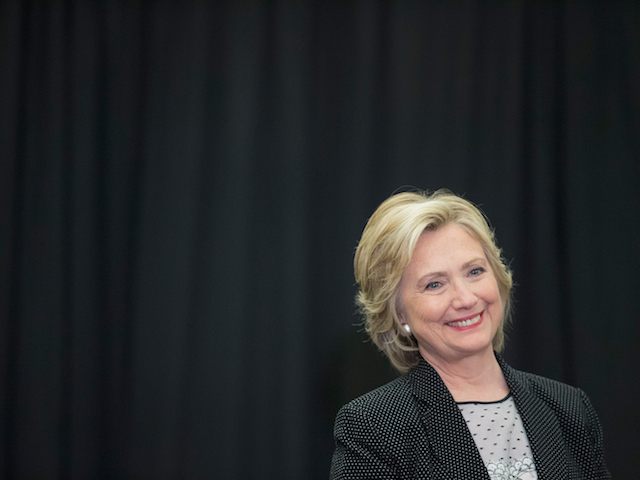Explosive undercover video purports to show a lawyer working with Hillary Clinton’s campaign in Las Vegas allegedly telling local campaign workers to violate election laws and how to conceal it, and then captures several campaign workers seeming to admit to apparent violations.
James O’Keefe strikes again. The Project Veritas Action video appears to show an undercover investigator, wearing a hidden camera, capturing several potentially self-incriminating conversations by several individuals working with Hillary Clinton’s presidential campaign.
Much of the eight-minute video focuses on Christina Gupana, a licensed Nevada attorney, who apparently manages the campaign’s efforts to register voters. In one discussion, Gupana instructs individuals who appear to be the staffers and volunteers, “Do whatever you can. Whatever you can get away with, just do it, until you get kicked out, like totally.”
These seem to reference electioneering tactics, which could be a serious matter. Much of the video concerns Clinton campaign operatives registering voters. This can be done legally only if a county clerk in Nevada appoints that person as a field registrar, which imposes strict legal duties upon that person. Under Nevada Revised Statute 293.505(10), while registering a voter, a field registrar shall not:
(a) Solicit a vote for or against a particular question or candidate;
(b) Speak to a voter on the subject of marking his or her ballot for or against a particular question or candidate; or
(c) Distribute any petition or other material concerning a candidate or question which will be on the ballot for the ensuing election.
But one clip appears to show campaign workers doing exactly that, showing a man the video identifies as Phillip Kim, allegedly a paid campaign operative, telling a voter, “I would say Hillary is your girl. You should go for a Democrat.” He immediately adds a disclaimer, saying, “But I can’t tell you one way or the other, that’s not my job.” However, the disclaimer does not undo what the video shows Kim just did—soliciting a vote for Hillary Clinton and telling a voter that she should mark her ballot for a Democrat. If done in connection with voter registration activity, those words would appear to violate the statute.
Another clip shows a man identified as Harrison Lee, who says he and another campaign operative “got kicked out” from in front of a public library, because they “can’t push HRC, Hillary, in front of the library.” He can be heard explaining that he had a campaign sign along with a voter registration sign at a registration table. “I had been doing that for a couple weeks,” Lee adds.
Regarding another incident, Lee says, “Like at a library or the DMV, we had been able to get away with asking the Hillary question after voter registration, for a long time.” The phrase “asking the question” is likely a reference to soliciting support from a voter.
Still another clip captures a man the video identifies as Henry Engelstein, regaling other campaign workers with his account of an encounter he claims to have had with a librarian who had come out with a law book because she “thought we were doing partisan voter registration”—that is, registration activities combined with soliciting support for Hillary Clinton, or for Democrats in general—reading the Nevada statute to them regarding what activities they cannot engage in while registering voters.
At this point, according to the video, Gupana can be heard weighing in, asking, “Wait, so what did she see, the caucus cards?” That could be a reference to a voter commitment card, which is partisan campaign literature asking for the voter to commit to supporting one particular candidate—here, Hillary Clinton—in Nevada’s Democratic presidential caucus, which will be held on February 20, 2016.
Distributing such material might violate § 293.505(10)(c), and asking someone to make that commitment might violate § 293.505(10)(a). When the worker clarifies that the material consisted instead of Hillary campaign signs and related materials to persuade voters to support Hillary, Gupana responds, “You should just hide all that stuff.”
Under Nevada law, NRS 293.505(15) specifies that any violation of this law is a Class E felony in that state, which can carry one to four years of prison time, plus separate civil fines of up to $20,000. Several of the activities captured or referenced in the video may constitute violations of the law, and if so, then it appears possible that an attorney with the campaign may have been encouraging the commission of illegal acts to advance Hillary Clinton’s candidacy.
Ken Klukowski is legal editor for Breitbart News. Follow him on Twitter @kenklukowski.

COMMENTS
Please let us know if you're having issues with commenting.